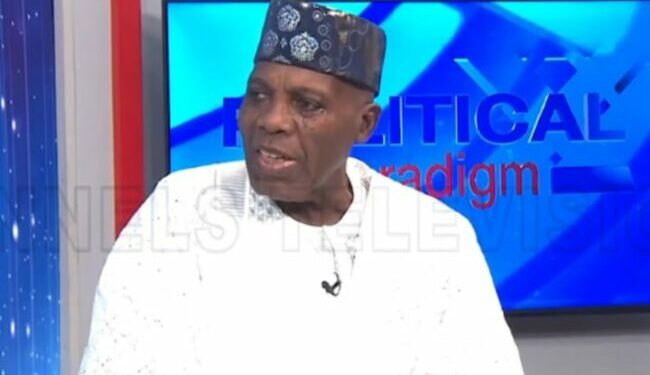Former presidential aide Doyin Okupe has criticised the National Minimum Wage Act, which mandates that all Nigerian states pay a uniform minimum wage.
Speaking on Channels Television’s Politics Today, Okupe argued that each governor should determine the minimum wage for their respective states based on their unique financial capabilities and local conditions.
“We should not make laws that is un-encompassing that make it compulsory for all governors in the federation to obey them.
“They are subnationalities on their own. I mean for instance, if you pay a minimum wage in Lagos, why should I pay that in Sokoto?
“Let every governor decide for his own state by his own people that this is what I can afford,” Okupe said.
He emphasised that the President should focus on the Federal Government’s obligations, while allowing states and their labour unions to negotiate appropriate minimum wages independently.
Meanwhile, former federal lawmaker Shehu Sani questioned how Edo State could afford to confidently raise a N70,000 minimum wage, suggesting that the financial situations of states vary significantly and should be considered in wage discussions.
This debate has been ongoing, as labour unions and the Federal Government have been negotiating a new minimum wage for several months.
After labour issued an ultimatum on May 31 and subsequently went on strike on June 3, the Federal Government promised to raise the minimum wage above N60,000, leading to a temporary suspension of the strike on June 3.
However, the 36 state governors have expressed concerns about the feasibility of a N60,000 minimum wage, arguing that it is unsustainable and would result in many states using all their monthly allocations from the federation account solely to pay workers’ salaries.
Halima Ahmed, the Acting Director of Media Affairs and Public Relations of the Governors’ Forum, noted that such a high minimum wage would not be viable for many states
The tripartite committee, consisting of representatives from the government, labour unions, and employers, continues to negotiate in an effort to reach a fair and sustainable agreement on the new minimum wage.
